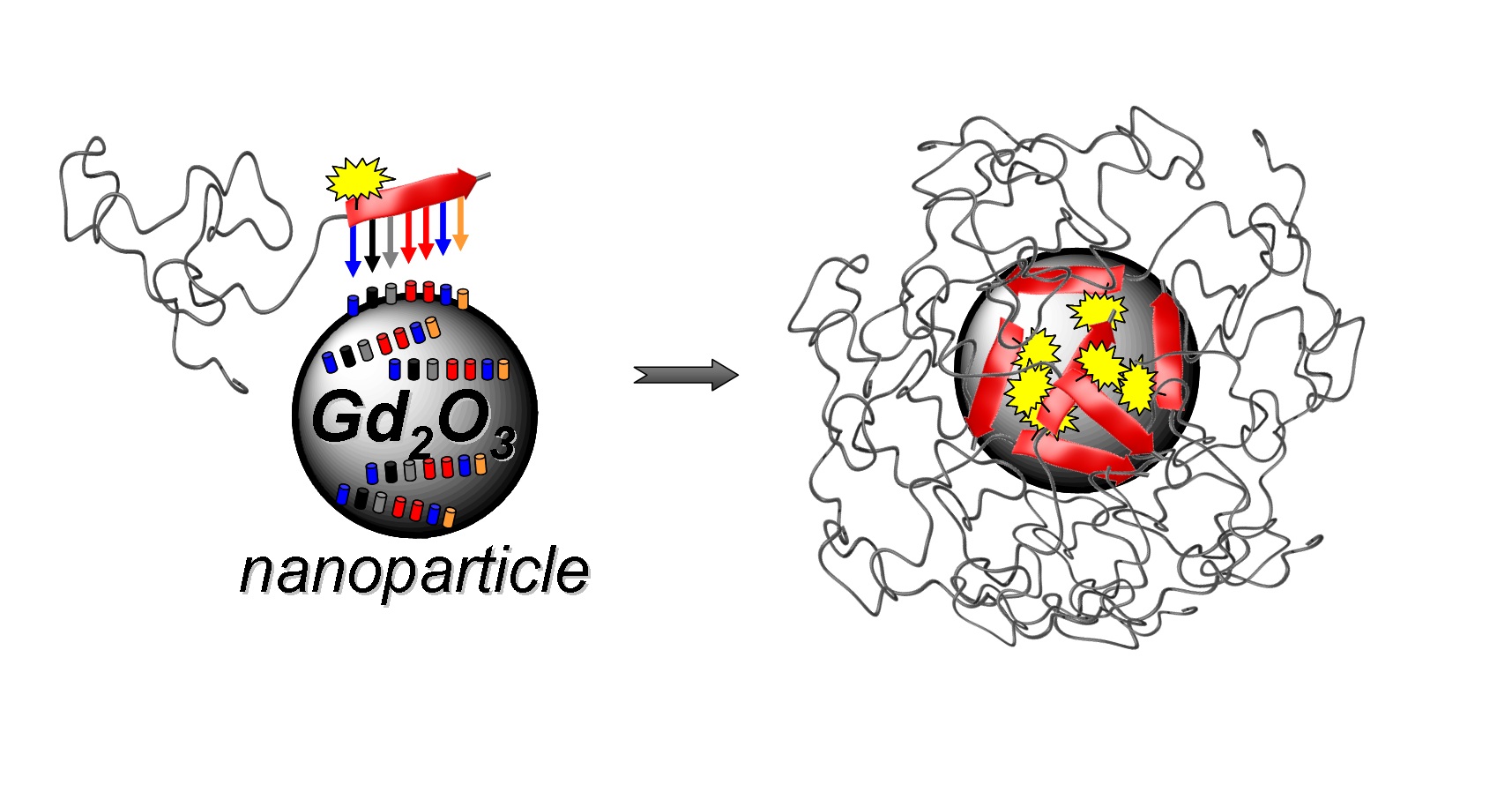|
|

|
|
Prof. Dr. habil. Hans Börner
| Phone: |
+49 (0)30 2093-7348 |
| Fax: |
+49 (0)30 2093-7500 |
Email
|
|
|
|
|
|
|
|
Contact Us |
|
|
|
Laboratory for Organic Synthesis of Functional Systems
Department of Chemistry
Humboldt-Universität zu Berlin
Brook-Taylor-Str. 2
12489 Berlin
Germany
Sekretariat
Phone: +49 (0)30 2093-7349
Fax: +49 (0)30 2093-7215
Room: 0'144
Email
office.functional-systems hu-berlin.de |
|
|
|
|
|
|
News
Peptide-mediated nanoengineering of inorganic particle surfaces: A general route toward surface functionalization via peptide adhesion domains.
ABSTRACT: The peptide-mediated functionalization of inorganic particle surfaces is demonstrated on gadolinium oxide (GdO) particles, revealing specific means to functionalize nano- or micro particles. Phage display screening is exploited to select 12mer peptides, which exhibit sequence specific adhesion onto surfaces of GdO particles. These peptide adhesion domains are exploited to effectively decorate GdO particles with fluorescently labeled poly(ethylene oxide) (PEO), proving to result in a stable surface modification as shown by significant reduction of protein adsorption by 80%, compared to non-functionalized particles. Peptide adhesion and stability of the non-covalent coating are investigated by adsorption/elution experiments and Langmuir isotherms. Fluorescence microscopy, contact angle and energy dispersive X-ray (EDX) measurements confirmed the sequence specificity of the interactions by comparing adhesion sequences with scrambled peptide sequences. Non-covalent, but specific modification of inorganic particle surfaces represents a generic strategy to modulate functionality and function of nano- or micro particle surfaces.

Thorsten Schwemmer, #, % Jens Baumgartner, $ Damien Faivre, $ and Hans G. Börner #,*
# Humboldt-Universität zu Berlin, Department of Chemistry, 12489 Berlin, Germany
% Center of Supramolecular Interactions Berlin (CSI Berlin) at Freie-Universität Berlin, 14195 Berlin, Germany
$ Max Planck Institute of Colloids and Interfaces (Dep. Biomaterials), 14424 Potsdam, Germany
|
|
|